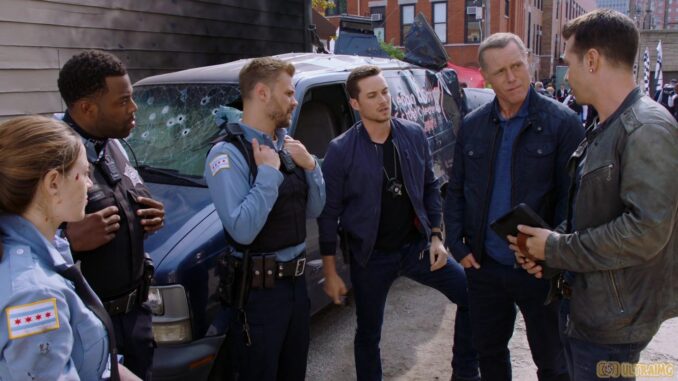
The Unseen Tightrope: How the Chicago PD Cast Balances On-Screen Drama with Real Life
In the crowded landscape of television procedurals, Chicago P.D. stands out not just for its relentless pace and morally complex characters, but for an often-unseen alchemy performed by its ensemble cast. Tasked with portraying the daily grind and heightened stakes of law enforcement in a major American city, the actors navigate a delicate tightrope: crafting compelling, often melodramatic, on-screen drama while honoring the brutal, nuanced, and frequently misunderstood realities of police work. This balancing act is not merely about good acting; it's a testament to profound research, emotional intelligence, and a palpable sense of responsibility that imbues their performances with a verisimilitude few shows achieve.
The foundational pillar of this balance lies in the cast's rigorous commitment to research and immersion in the authentic world of policing. Actors like Jason Beghe (Hank Voight) and Jesse Lee Soffer (Jay Halstead) are well-documented proponents of extensive ride-alongs with actual Chicago police officers. These aren't perfunctory visits; they involve spending countless hours in patrol cars, observing arrests, witnessing crime scenes, and engaging with officers about the emotional toll and ethical dilemmas of their profession. This hands-on experience allows them to understand the unspoken language of law enforcement – the subtle nods, the tactical movements, the weariness in an officer’s eyes, and the camaraderie forged under pressure. When Beghe’s Voight delivers a chilling monologue or Soffer’s Halstead navigates a tense interrogation, the authenticity isn't just in the words; it's in the posture, the controlled breathing, the almost imperceptible tics that betray a deep understanding of the uniform. This grounding in reality provides the bedrock upon which the show’s more dramatic plotlines – the audacious chases, the sudden shootouts, the internal conflicts – can be built without feeling entirely detached from the real world.
Beyond the procedural mechanics, the cast members grapple with the immense emotional and psychological weight of their characters, often mirroring the real-life trauma experienced by first responders. Characters like Tracy Spiridakos’s Hailey Upton, who frequently battles PTSD and moral injury, or Patrick John Flueger’s Adam Ruzek, who grapples with the fallout of critical mistakes, are not simply performing; they are embodying complex human beings under extreme pressure. The actors consistently speak about the emotional exhaustion of portraying such heavy material, acknowledging the profound impact these fictional narratives have on their own psyches. This commitment to internalizing the emotional toll, rather than just playing the hero, elevates the drama from mere entertainment to a poignant exploration of the human condition. It allows the audience to connect with the characters on a deeper level, recognizing the echoes of real-life struggles with mental health, ethical compromises, and the constant threat of danger that define the lives of those in uniform. The authenticity of their emotional arcs makes the high-stakes dramatic scenarios resonate with a greater sense of truth.
Crucially, the Chicago P.D. cast also leverages their platform to bridge the gap between their on-screen roles and real-world issues. They frequently engage in charity work, support organizations for first responders, and speak out on topics like mental health awareness for police officers. This off-screen advocacy demonstrates a profound understanding that their portrayal carries weight beyond just ratings. They are not merely actors playing dress-up; they are, in a sense, temporary ambassadors for a profession often under intense public scrutiny. By using their visibility to highlight the challenges and sacrifices of real officers, they add another layer of legitimacy to their on-screen portrayals. This dedication fosters a unique feedback loop: the realism of their performances informs their advocacy, and their advocacy, in turn, deepens their commitment to authentic portrayal, thereby allowing the show to tackle highly charged social issues – from racial profiling to systemic corruption – with a nuanced approach that seeks understanding rather than sensationalism.
In conclusion, the Chicago P.D. cast’s masterful balance between on-screen drama and real-life authenticity is a multi-faceted achievement. It stems from their unwavering commitment to thorough research, their profound emotional investment in their characters’ struggles, and their responsible use of their public platform. This intricate dance allows the show to deliver gripping entertainment without sacrificing the integrity of the profession it depicts. The result is a series that not only thrills but also challenges its audience, forcing a confrontation with the difficult realities of law enforcement, all made powerfully tangible by actors who understand that their craft demands more than just a performance – it demands a responsibility to the truth.
